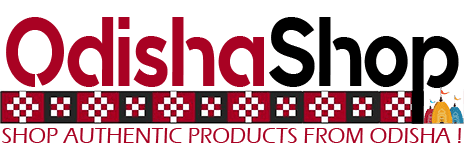Pitambara Das was born of Brahmin namely Balukesvara Das in a village on the bank of the river Rusikulya in Ganjam district. He was a house-holder Vaishnava living on alms and the chanting of the holy name of God, yet he acquainted himself with the contemporary and ancient odia and Sanskrit literature. He was endowed with superb memory and imaginative power which was exhibited in his epic Nrisimha Purana. He has been regarded as one of the most outstanding Purana creators in the odia language.
The Nrisimha Purana is divided into seven parts each named as ‘Ratnakara’ (the treasury of jewels). It differs from the original Nrisimha Purana in Sanskrit in its main structure. The main plot of this Purana is not the story of Hiranyakashipu, Prahlada and the Lion-incaration of Vishnu, but of Vishnu and Ananta (serpent bed) born as two sons of a Brahmin King of Badrika namely Krishna Ballava, taking the names of Nrisimha and Shesha respectively. Prince Nrisimha in his youth, had to face an archery contest to win the hands of the beauty-queen Lakshmi. Mura and Daruna, two demon brothers who oppressed heaven and earth, were killed by Nrisimha and Shesha.
The story of the temptation of Shuka, the ascetic, by Menaka, is very interesting. The story of Manu, an allegory of Jiva (soul) and Parama (cosmic soul) and a strange mystic episode are equally enjoyable. The mysticism revealed in the seventh and last chapter is unintelligible to the common man though the simile is given in the most common vocabulary. The poet also narrates the episode of the traditional story of Hiranyakashipu, his destruction by Nrisimha, the lion incarnate of Vishnu and the killing of Kamsa by Krishna in the last chapter.
The epic is a mirror of contemporary social conditions, cultural and religious, of odisha. The poet tried to show how all the religious streams of his age have been assimilated into the Jagannath cult, where all differences of caste and creed vanish. He has also glorified Lord Jagannath, Vishnu, Nrisimha and Buddha as identical God-head.
Odia Books By Pitambara Das
Nrisimha Purana
Shuka
Menaka
Manu
Parama
Hiranyakashipu


Leave Your Comment